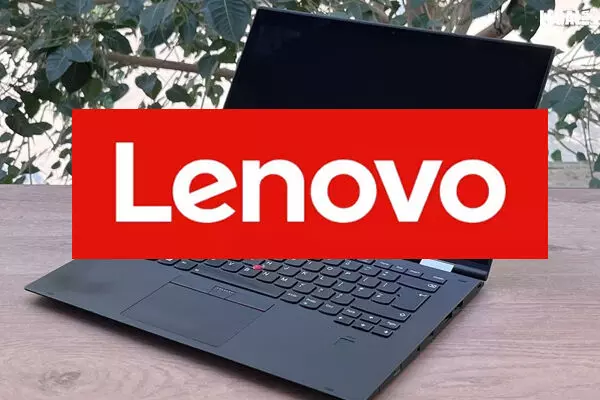- Home
- News
- Articles+
- Aerospace
- AI
- Agriculture
- Alternate Dispute Resolution
- Arbitration & Mediation
- Banking and Finance
- Bankruptcy
- Book Review
- Bribery & Corruption
- Commercial Litigation
- Competition Law
- Conference Reports
- Consumer Products
- Contract
- Corporate Governance
- Corporate Law
- Covid-19
- Cryptocurrency
- Cybersecurity
- Data Protection
- Defence
- Digital Economy
- E-commerce
- Employment Law
- Energy and Natural Resources
- Entertainment and Sports Law
- Environmental Law
- ESG
- FDI
- Food and Beverage
- Gaming
- Health Care
- IBC Diaries
- In Focus
- Inclusion & Diversity
- Insurance Law
- Intellectual Property
- International Law
- IP & Tech Era
- Know the Law
- Labour Laws
- Law & Policy and Regulation
- Litigation
- Litigation Funding
- Manufacturing
- Mergers & Acquisitions
- NFTs
- Privacy
- Private Equity
- Project Finance
- Real Estate
- Risk and Compliance
- Student Corner
- Take On Board
- Tax
- Technology Media and Telecom
- Tributes
- Viewpoint
- Zoom In
- Law Firms
- In-House
- Rankings
- E-Magazine
- Legal Era TV
- Events
- News
- Articles
- Aerospace
- AI
- Agriculture
- Alternate Dispute Resolution
- Arbitration & Mediation
- Banking and Finance
- Bankruptcy
- Book Review
- Bribery & Corruption
- Commercial Litigation
- Competition Law
- Conference Reports
- Consumer Products
- Contract
- Corporate Governance
- Corporate Law
- Covid-19
- Cryptocurrency
- Cybersecurity
- Data Protection
- Defence
- Digital Economy
- E-commerce
- Employment Law
- Energy and Natural Resources
- Entertainment and Sports Law
- Environmental Law
- ESG
- FDI
- Food and Beverage
- Gaming
- Health Care
- IBC Diaries
- In Focus
- Inclusion & Diversity
- Insurance Law
- Intellectual Property
- International Law
- IP & Tech Era
- Know the Law
- Labour Laws
- Law & Policy and Regulation
- Litigation
- Litigation Funding
- Manufacturing
- Mergers & Acquisitions
- NFTs
- Privacy
- Private Equity
- Project Finance
- Real Estate
- Risk and Compliance
- Student Corner
- Take On Board
- Tax
- Technology Media and Telecom
- Tributes
- Viewpoint
- Zoom In
- Law Firms
- In-House
- Rankings
- E-Magazine
- Legal Era TV
- Events
DCRDC Orders Lenovo India to Refund Laptop Amount And Compensate Consumer

DCRDC Orders Lenovo India to Refund Laptop Amount And Compensate Consumer
Noted that the issues with the product arose within a few months of the purchase
The Hyderabad, Telangana bench of the District Consumer Disputes Redressal Commission (DCDRC) has held Lenovo India liable for deficiency in services and unfair trade practices for selling a defective product to a complainant.
The bench comprising B. Uma Venkata Subba Lakshmi (President) and C. Lakshmi Prasanna (Member) directed the company to pay the complainant Rs.61,441, the price of the laptop, Rs.20,000 compensation, along with Rs.10,000 as cost for litigation.
An individual, Mohammed Irshad Ahmed (complainant), a chartered accountant relying heavily on computers for daily jobs, approached the authorized dealer of Lenovo to purchase a laptop.
However, in February 2023, Ahmed encountered a problem with the laptop. On contacting the Customer Care department, a technician replaced the battery, resolving the issue, albeit temporarily.
In April, the heating and operating system problem persisted. Despite several repairs by the technician, the issues remained unresolved.
The complainant raised the matter with Lenovo via email but did not receive any substantial response.
Thereafter, the aggrieved customer approached the DCRDC, filing a consumer complaint against Lenovo.
In response, Lenovo submitted that the complaint was an abuse of the legal process and should be dismissed. It denied service deficiency, arguing that it provided appropriate resolutions and took necessary action to rectify the issues. The firm emphasized its commitment to excellent after-sales service through authorized service centres.
Lenovo claimed that Ahmed was not entitled to replacement or refund of the product since the service technician promptly attended to the issues. It maintained that minor issues due to wear and tear or non-compliance with the instruction manual do not necessarily indicate manufacturing defects. Still, as a goodwill gesture, it had offered free-of-cost repair for any hardware issues.
The District Commission observed that the laptop was taken to Lenovo’s service centre within one-and-a-half months and four months of its purchase. It held that the issue and replacement within the short span indicated a defect in the product. Despite Lenovo's claim that its technical team resolved the issues, DCRDC held that the complainant made several visits to the service centre for various problems. Therefore, selling a defective product amounted to unfair trade practices and deficiency in services.
The DCRDC held that in case of repeated repairs in a short period after purchase, it is justifiable for the consumer to demand a refund or replacement.
The Commission directed Lenovo to refund the actual price of the product to the complainant and compensate him. Meanwhile, Ahmed was instructed to return the laptop to Lenovo.


